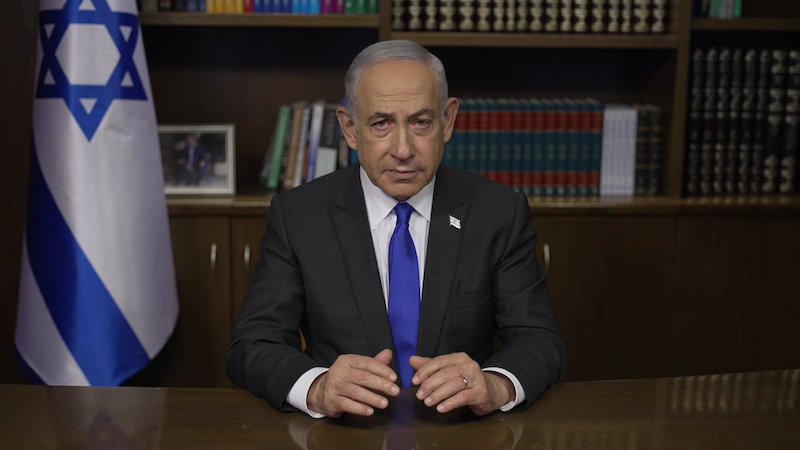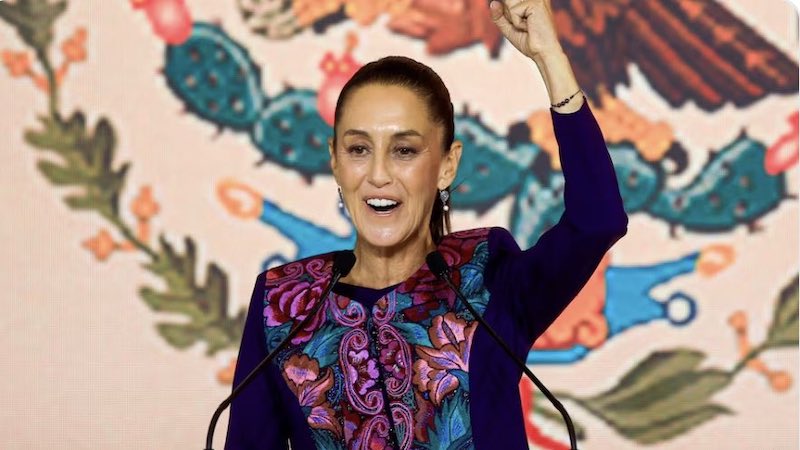
The coming week or two could determine Prime Minister Binyamin Netanyahu’s political fate and reshape the Biden administration’s support for Israel’s Gaza war.
That is, if Mr. Netanyahu fails to comply with war cabinet member Benny Gantz’s demand that the prime minister produce a plan for the post-war administration of Gaza by June 8;and Mr. Gantz makes good on his threat to resign.
Mr. Netanyahu has refused to spell out a post-war plan as long as Israel has not destroyed Hamas, in part because he fears his ultra-nationalist and ultra-conservative coalition partners will collapse the government if he proposes anything short of total Israeli control of the Strip.
The Biden administration, Israeli Defence Minister Yoav Gallant, and senior Israeli military commanders share Mr. Gantz’s frustration.
If Mr. Gantz resigns, he will likely be joined by fellow war cabinet member and former Israel Defence Forces (IDF) chief of staff Gabi Eisenkot.
Mr. Gantz has good reason to stand by his ultimatum. A recent Israeli opinion poll;suggests that while he would still win an election, continued presence in the government is beginning to cost him.
The poll showed Mr. Gantz at 38 per cent, down from his 46 per cent high in January, while Mr. Netanyahu’s numbers increased to 30 per cent, up from 24 per cent six months ago.
While Mr. Netanyahu would still lose in an election, the poll suggests Mr. Gantz can ill-afford to risk his popularity further.
“Mr. Netanyahu is gradually recovering in the polls, and the gap between him and Mr. Gantz has almost closed. In the most recent surveys…, Mr. Netanyahu outperformed all his rivals. While his coalition is far from clinching victory, the latest polls suggest a deadlock. Israel’s political system allows one side to prevent the other from establishing a government,;potentially triggering a few more rounds of elections,” said Israeli commentator Amit Segal.
One of four scenarios is likely to unfold depending on what Mr. Gantz decides and was probably part of US President Joe Biden’s decision to officially announce his Qatar and Egypt-backed ceasefire plan in a bid to pressure both Hamas and Israel:
- Mr. Netanyahu could stall until his address to the US Congress on July 24.
- Mr. Netanyahu could dump his most militant ultra-nationalist and ultra-conservative coalition partners, represented by National Security Minister Itamar Ben Gvir and Finance Minister Bezalel Smotrich, who oppose a ceasefire deal that would lead to the release of Hamas-held hostages.
Instead, Mr. Netanyahu could form a government cooperating with Mr. Gantz, opposition leader Yair Lapid, and two religious coalition partners,;Shas and United Torah Judaism, who favor a ceasefire and hostage deal.
- Mr. Netanyahu decides to roll the dice and call for snap elections if Messrs. Gantz and Eisenkot resign.
- Messrs. Gantz and Eisenkot resign, leaving Mr. Netanyahu even more beholden to Messrs. Ben Gvir and Smotrich.
“If the National Unity Party makes good on its threat to bolt Netanyahu’s coalition, he will;lose the flak jacket that has protected him from even greater criticism abroad… (The government will lose the kosher certificate that helped it look responsible and balanced, and less extreme, messianic and racist.” said Israeli columnist Yossi Verter.
Messrs. Ben Gvir and Smotrich sought to limit Mr. Netanyahu’s space in ceasefire negotiations with tens of thousands of their supporters marching on Jerusalem Flag Day through Jerusalem’s Muslim Quarter to celebrate Israel’s conquest of East Jerusalem in the 1967 Middle East war.
Participating in the march, Mr. Ben Gvir said it sent Hamas a message that “Jerusalem is ours.”
Referring to one of the gates to the old city, of which the Muslim Quarter is part, and the Temple Mount that hosts the Al Aqsa Mosque, Islam’s third holiest site, Mr. Ben Gvir asserted that the “Damascus Gate is ours. The Temple Mount is ours, and, God willing, complete victory is ours.”
Militant Ben Gvir followers attacked Palestinian residents and journalists, chanting “Death to the Arabs,” “May your village burn,” and “Shuafat is up in flames,” a reference to an East Jerusalem Palestinian neighborhood.
A Gantz-Eisenkot walk-out that would make Mr. Netanyahu even more dependent on Messrs. Ben Gvir and Smotrich would increase pressure on Mr. Gallant, the defence minister, to follow suit and complicate Mr. Biden’s support for Israel.
“I know there are those in Israel who will not agree with this plan and will call for the war to continue indefinitely… Some are even in the government coalition. And they’ve made it clear: They want to occupy Gaza, they want to keep fighting for years, and the hostages are not a priority to them…. I’ve urged the leadership in Israel to stand behind this deal, despite whatever pressure comes,” Mr. Biden said as he put forward his proposed ceasefire deal that appears to be based on a draft endorsed by Mr. Netanyahu.
In effect, Mr. Biden was cautioning Mr. Netanyahu not to allow for a situation in which he increases rather than reduces his dependency on Messrs. Ben Gvir and Smotrich.
At the same time, Israeli analysts suggest that in Mr. Netanyahu’s mind, potential International Criminal Court (ICC) warrants for the arrest on war crime charges of the prime minister and Mr. Gallant is turning the continuation of the Gaza war into a liability rather than an asset that would ensure he remains in office.
The United States and 16 other countries whose citizens were taken hostage by Hamas on October 7 increased pressure on Mr. Netanyahu with the release of a joint statement calling on Israel and Hamas to conclude a ceasefire deal.
Meanwhile, the United Nations Security Council, with Mr. Netanyahu potentially at a crossroads, appears to have delayed discussing a resolution that would endorse Mr. Biden’s ceasefire plan.
The United States initially circulated a draft resolution;in support of the plan that was likely to be vetoed because it put the onus of acceptance on Hamas. That would be more difficult to do with an Israeli government void of most “adults in the room.”
With the United States less vulnerable because of its stubborn support of Israel than many assume, Mr. Netanyahu may believe that he can use his Congressional speech to get away with whatever fallout a departure of Messrs. Gantz and Eisenkot would have.
Mr. Netanyahu may be right that the United States feels less pressured to tighten the screws on Israel with deeds rather than words.
To be sure, the US has lost moral standing because of perceived double standards in its approach towards the Ukraine and Gaza wars. US diplomats preaching human rights and the rule of law would likely be laughed out the door.
Nevertheless, Gulf states and various Asian nations still see the United States as the only security game in town.
Moreover, support for Israel has barely cost the United States economically, except for food franchises like Starbucks which suffer from boycotts in several Middle Eastern countries.
In late May, a previously unknown group, Ashaab al-Khaf (People of the cave), attacked several US food outlets in Baghdad, including KFC and Chilli House.
Even so, countries like Saudi Arabia;and the United Arab Emirates;prefer cooperating with the US over China on technology, including artificial intelligence.
This has not stopped Gulf states from investing in Chinese technology.
The UAE’s G42 artificial intelligence holding company concluded a partnership with Microsoft in April after agreeing with the ;US Commerce Department’s Bureau of Industry and Security that it would pare back its presence in China or face potentially punitive sanctions.
Mr. Netanyahu’s problem is that Mr. Biden’s frustration with the Israeli prime minister and his ultra-nationalist and ultra-conservative partners has little to do with the cost of US support for Israel and potentially more with an emerging historic shift in what was once a “special relationship” between the United States and Israel.
Said prominent Middle East analyst Hussein Ibish: “The rift between the Israeli government and Mr Biden, and indeed between Israel and the US, over Gaza…appears to be widening at every phase. This is not…an ordinary rift… It has…all the makings of the beginning of the end of the ‘special relationship’ that has existed between the two countries since the late 1960s. And, as things stand, it’s only likely to get worse over time.”


